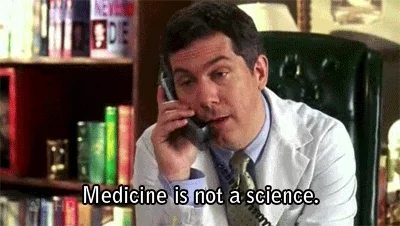Originally published at: At Indoensia airport, 10,000 travelers may have been COVID tested with used swabs | Boing Boing
…
Well, that’s horrifying.
OK, Ew…
But two questions come to mind.
A. Were the reused tests accurate?
B. Did this spread COVID-19?
If it didn’t, that would be like absolutely the last straw of this reality and the whole simulation would break apart. If those swabs were indeed reused, this is the biggest super-spreader event ever, maybe?
I am no epidemiologist, but the sheer volume of bio-matter changing hosts ensure transfer of a highly communicable disease, right?
ETA: quote
You know, this sounds like something the White House staff during the Dark Times would’ve done.

recoils in horror
But, hey, the company reduced costs by disrupting the testing industry’s tired old practises. Free markets FTW!
Hey BB - long live spellcheck.
And that’ll be Indonesian. Saying Indonesia is like saying “at America airport”.
I think it’s more:

Had to look it up, but it was Vietnam where the “recycled condoms” ring was busted. This sounded a wee bit too similar.
Snot as bad as it seems. I hope the scammers get maximum terms.

Does anyone know what a suitably medical-grade sampling swab costs when bulk purchased/priced at actual market value rather than fictitious-healthcare-invoice-price?
If we make the assumption that the perpetrators of this scheme were acting rationally but unethically that would seem to imply either a much higher price than I would have expected, or a supply of conspirators willing to take on risk very, very, cheaply(in addition to doing the work necessary to refurbish the swabs and their packaging well enough to be convincing; which must apparently be cheaper than obtaining new ones; but certainly costs something in time and potentially materials; with additional complexity if there’s a barcode or other sample-collector labelling system in use that introduces a unique identifier that either needs to be regenerated each time or fudged elsewhere in the system).
It’s especially striking when it happened at an airport, which commonly implies a captive audience and vendors either directly contracted by the airport’s managing entity or more tightly controlled by that entity than they would be in an ordinary commercial leasing or renting context. Maybe I’ve just been steeped in the American values of post-manufacturing financial engineering for too long; but this seems like a context where the obvious play would be a bit of corruption at the procurement stage followed by exploitation of your sole-source position to cash in; not something so viscerally disgusting, labor intensive; and punishable as more types of offense.
This topic was automatically closed after 5 days. New replies are no longer allowed.
